
The chief medical officer of Acadia Pharmaceuticals provided commentary on a caregiver analysis assessing beneficial experiences with trofinetide in patients with Rett syndrome. [WATCH TIME: 4 minutes]

The chief medical officer of Acadia Pharmaceuticals provided commentary on a caregiver analysis assessing beneficial experiences with trofinetide in patients with Rett syndrome. [WATCH TIME: 4 minutes]
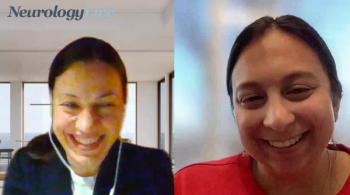
The European evidence generation strategy lead for epilepsy and rare syndromes at UCB Pharma talked about positive results from observational studies assessing the impact of brivaracetam among patients with focal seizures, which was presented at AES 2023. [WATCH TIME: 5 minutes]

The senior vice president, global head of medical affairs, and chief medical officer at Acadia Pharmaceutical, gave an overview of LILAC-2, a long-term extension study assessing trofinetide (Daybue), the first approved therapy for Rett syndrome.
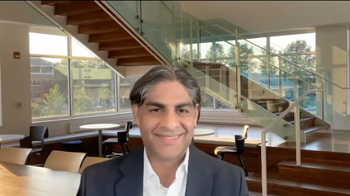
The chief medical officer at Biohaven provided context on how BHV-7000 may be used with other antiseizure medications as well as what changes in spectral power tell about the agent. [WATCH TIME: 4 minutes]

The senior vice president, global head of medical affairs, and chief medical officer at Acadia Pharmaceutical, provided an overview of LILAC-2, a long-term, open-label study assessing the treatment benefits of trofinetide (Daybue). [WATCH TIME: 6 minutes]

The chief medical officer of Biohaven discussed early-stage data supporting the efficacy and safety of BHV-7000, a selective Kv7.2/7.3 potassium channel activator in development for patients with epilepsy.

The chief medical officer at Biohaven provided clinical insight on the mechanism of action of BHV-7000, an antiseizure medication, and its supportive phase 1 data. [WATCH TIME: 4 minutes]
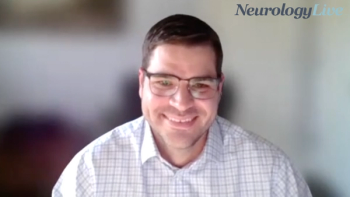
The health economics outcomes research specialist at UCB talked about a retrospective analysis assessing the persistence of fenfluramine (Fintepla) in Dravet syndrome over 12 months, compared with valproate and levetiracetam. [WATCH TIME: 4 minutes]
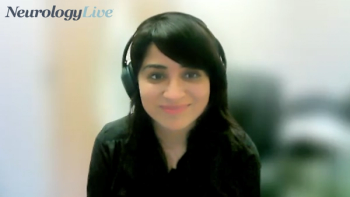
The assistant professor of neurology at the University of Virginia talked about findings from a comprehensive study on epilepsy and mild cognitive impairment, which was recently presented at AES 2023. [WATCH TIME: 5 minutes]

The research scientist at NYU Langone Health talked about findings from preclinical data investigating epileptiform activity in mouse models of Alzheimer disease, which were presented at AES 2023. [WATCH TIME: 4 minutes]

Over a 32-week treatment period, patients on trofinetide continued to show improvements on the primary efficacy outcomes of Rett Syndrome Behavior Questionnaire and Clinical Global Impression-Improvement total scores.
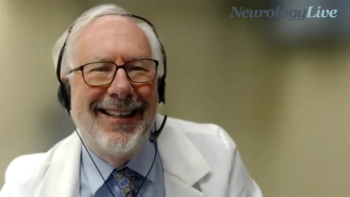
The professor of neurology at Johns Hopkins University School of Medicine talked about the need for education to optimize treatment selection and the continually changing landscape of care for patients with epilepsy. [WATCH TIME: 5 minutes]

The vice president of medical affairs at SK Life Science talked about findings from a new post-hoc analysis which highlighted the importance of strategically reducing concomitant medications to minimize adverse events of epilepsy treatment. [WATCH TIME: 5 minutes]
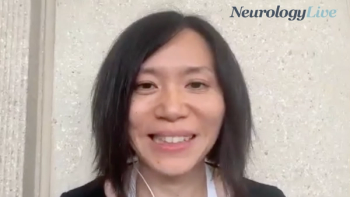
The clinical assistant professor of neurology at Stanford University talked about findings from a study on genetic testing in adults with epilepsy and the importance of access to genetic testing for this patient population. [WATCH TIME: 7 minutes]

Although a small-scale study, most infants had a positive response to ketogenic diet, with even greater effects seen in those with Ohtahara syndrome.
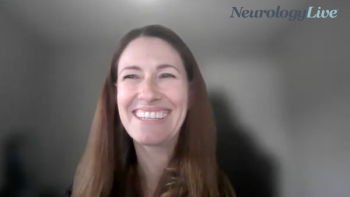
The division director of epilepsy and associate professor of neurology at The Ohio State University Wexner Medical Center talked about the impact of ongoing seizures in patients with drug-resistant epilepsy and the importance of education for emerging opportunities in epilepsy care. [WATCH TIME: 3 minutes]

Clobazam and valproate, when used concomitantly, produced a greater treatment effect with ganaxolone than other antseizure medications levetiracetam and vigabatrin.

Notably, nearly 50% of patients prescribed the Biocodex therapy were not on concomitant clobazam, a contrasting practice with the FDA label’s indication. To date, no data support its use as monotherapy for Dravet syndrome.

The retrospective cohort study, led by R. Eugene Ramsay, MD, highlighted the impacts of vigabatrin in patients with super refractory status epilepticus.

The division chief of pediatric neurosurgery at Ann & Robert H. Lurie Children's Hospital of Chicago talked about findings from a recently published study on long-term survival of pediatric patients with drug-resistant epilepsy which was presented at AES 2023. [WATCH TIME: 6 minutes]

Using a caregiver questionnaire, noted improvements in verbal, non-verbal communication, and engagement were observed on soticlestat treatment.

The vice president of medical affairs at SK Life Science discussed how epilepsy remains a formidable challenge in the development of effective therapies to achieve seizure freedom. [WATCH TIME: 5 minutes]

A recent 6-month cohort study presented at the 2023 AES Annual Meeting demonstrated that adjuvant cenobamate significantly reduced seizures in patients with severe refractory focal epilepsy and suggested potential benefits in hospitalization rates.

The professor of neurology at Johns Hopkins University School of Medicine discussed the traditional view of epilepsy treatment and how the paradigm has shifted to provide new treatments to achieve seizure freedom for drug-resistant patients. [WATCH TIME: 5 minutes]

Test your neurology knowledge with NeurologyLive®'s weekly quiz series, featuring questions on a variety of clinical and historical neurology topics. This week's topic is the history of the American Epilepsy Society.

In a recent post hoc analysis of the Study C021 trial, findings support the idea that early adjustments to concomitant antiseizure medications enhance the retention of cenobamate, an FDA-approved treatment for focal seizures.
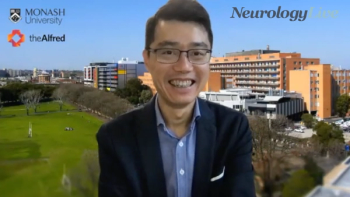
The professor of neurology in the department of neuroscience at Monash University discussed implementation strategies for treatment approaches to achieve seizure freedom in patients with epilepsy. [WATCH TIME: 5 minutes]

Over a 12-week trial period, Asian patients treated with brivaracetam demonstrated efficacy and safety outcomes that were similar to other populations previously observed.

In an analysis of lacosamide in pregnant women, a low number of preterm birth deliveries were reported, with no new safety concerns identified.

The director of the Mid-Atlantic Epilepsy & Sleep Center and adjunct associate professor of neurology at George Washington University discussed the advancements in epilepsy research, especially for drug-resistant epilepsy, to be presented at AES 2023. [WATCH TIME: 4 minutes]